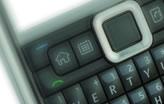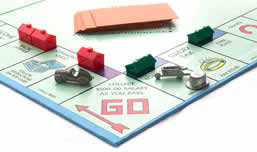What would you do without your smartphone?
Once upon a time the only place you’d find a story about a patent dispute was a back section of the newspaper, in the law reports or perhaps in the business pages where a court win or loss had given the share price a bit of a wobble.
Widgets, chemicals and pharmaceuticals didn’t capture the editor’s or the public imagination. When it comes to the rather ergonomic, really very useful, endlessly entertaining, and really very smart indeed smartphones, patent litigation that could see a favourite gadget disappear from the market finds itself as home page news.
It all really started back in 2000 with the threat in the US that successful patent litigation could cause the BlackBerry network to be switched off. Could that happen? Would that ever be allowed to happen? Really? What would be the implications?

The model then was for non-producing patent owners to start litigation for patent infringement in the hope of extracting licence fees from mobile device manufacturers and operators in the hope that they would prefer not to risk injunctions and disruption to their operations and sales. The major market-share holders in North America and in Europe such as BlackBerry-makers RIM, and Nokia became the early big targets for the NPEs (non-producing entities) or "trolls".
This model for patent litigation has continued but in the last few years telecoms patent litigation has snowballed as competitor manufacturers in the smartphone market have taken up the fight in the patents courts. Many newspapers have run with schematic diagrams of who is suing who in the smartphone wars– and there are a lot of arrows. iPhone and the Android phones are the current successes in the smartphone markets and whilst battling for share in the marketplace, logically competitors take their battle to the patents courts of the world. All those contributing R&D to the technology want to see that rewarded by revenue through sales and/or through licence fees for the underlying technology. The main battlegrounds have been the US and Germany with very significant numbers of cases in the UK as well as the Netherlands, Japan, China, Korea, Australia. At last count, Apple and Samsung were slogging it out in 10 jurisdictions.
The sort of patents on which these disputes centre fall into two types:
- Patents relating to unique features– particular characteristics, even USPs of the phones in question – think Apple’s "slide - to - unlock" as James Marshall discusses in his article.
 Standards essential patents. Mobile phone technology requires interoperability so that the phones speak to each other, and are able to operate on the networks. This provides an interesting additional dimension. As explained in this article, the grant of a patent is a grant of a monopoly right to use that invention and to exclude others from doing so. But if only your phone works that way, what use is it? Interoperability standards therefore had to be created where it is agreed what technology will be used. Those whose patented technology is being included identify their relevant patents and agree to licence the patents on Fair, Reasonable, and Non-Discriminatory ("FRAND") terms.
Standards essential patents. Mobile phone technology requires interoperability so that the phones speak to each other, and are able to operate on the networks. This provides an interesting additional dimension. As explained in this article, the grant of a patent is a grant of a monopoly right to use that invention and to exclude others from doing so. But if only your phone works that way, what use is it? Interoperability standards therefore had to be created where it is agreed what technology will be used. Those whose patented technology is being included identify their relevant patents and agree to licence the patents on Fair, Reasonable, and Non-Discriminatory ("FRAND") terms.
The patentee has allowed its invention to be used in the standard in order to be able to collect licence fees from all players in the market. The concepts of patent monopoly and of standardisation have an uneasy union. Patents are monopoly rights and standardisation is a sharing of technology, and many of the current smartphone cases coming before the courts are requiring the courts to deal with this clash.
The dichotomy doesn’t arise if the parties can agree the licence fee, but it is easier said than done. Licensing agreements are usually cross-licensing agreements and what the net payment will be depends on the relative portfolios of the parties, meaning that terms will be different as between different parties and what is agreed as FRAND can be variable depending on each bilateral position.
If licensing negotiations have not resulted in a FRAND licence being paid, can the patentee get a temporary injunction (i.e. invoke his monopoly) until the dispute is resolved? Invariably the infringer who is sued for having paid no licence fee will counterclaim that the patent is invalid and that no licence fee should be paid. In Germany the latest cases (see for example the Orange Book cases) suggest the court’s view is that the licence payer should at least have tried to pay what it thinks is FRAND, to avoid an injunction, whereas it could perhaps be said that the court in the Netherlands (see Samsung v Apple) sees the onus on the patentee to have offered a FRAND licence or tried to negotiate a FRAND licence in order to be able to seek an interim injunction pending full resolution of the dispute.
Can you get an injunction while the court works out what the FRAND rate is on a patent which it determines is valid and infringed? How does it work out what is FRAND?
 The interplay of standardisation and patent rights has not only produced interesting conundrums for the patents courts of the world in terms of the remedies that should be available, but these aspects stray into the arena of competition law. Patents are a monopoly right i.e. lawfully anti- competitive. But when does use of those rights amount to an abuse of a dominant position and fall foul of competition laws and anti-trust? One such abuse is known as "patent ambush" where a patentee allows a standard to be set using his technology, but doesn’t declare the patents so that either the failure to declare the patents has meant a cheaper alternative wasn’t implemented and/or that licences on FRAND terms are not offered.
The interplay of standardisation and patent rights has not only produced interesting conundrums for the patents courts of the world in terms of the remedies that should be available, but these aspects stray into the arena of competition law. Patents are a monopoly right i.e. lawfully anti- competitive. But when does use of those rights amount to an abuse of a dominant position and fall foul of competition laws and anti-trust? One such abuse is known as "patent ambush" where a patentee allows a standard to be set using his technology, but doesn’t declare the patents so that either the failure to declare the patents has meant a cheaper alternative wasn’t implemented and/or that licences on FRAND terms are not offered.
The commission has opened a formal investigation into Samsung’s practices relating to essential patent rights and Apple has called for an investigation into Motorola's use of essential patents. This comes after Motorola recently obtained an infringement decision in Germany for a patent declared standard essential which meant Apple removed for a short time certain iPhone and iPad models from its on-line store in Germany.
If you have any questions on this article please contact us.

"Patents are monopoly rights and standardisation is a sharing of technology, and many of the current smartphone cases coming before the courts are requiring the courts to deal with this clash.
The dichotomy doesn’t arise if the parties can agree the licence fee, but it is easier said than done."

